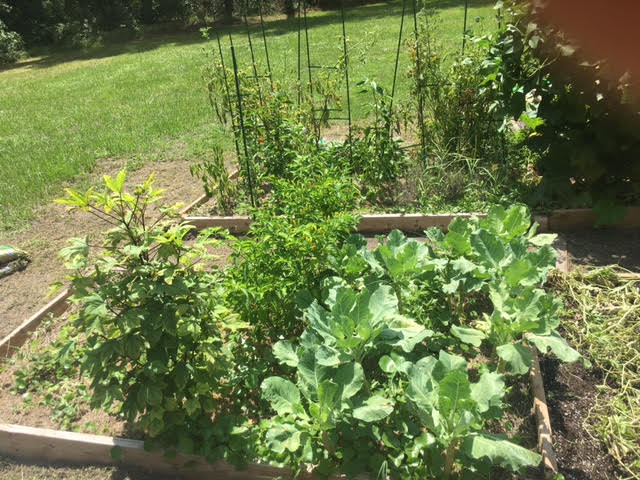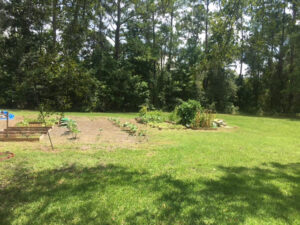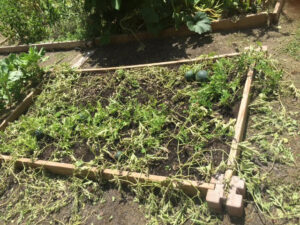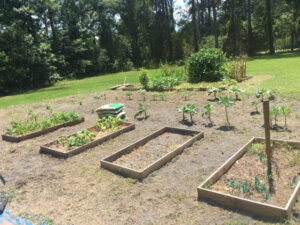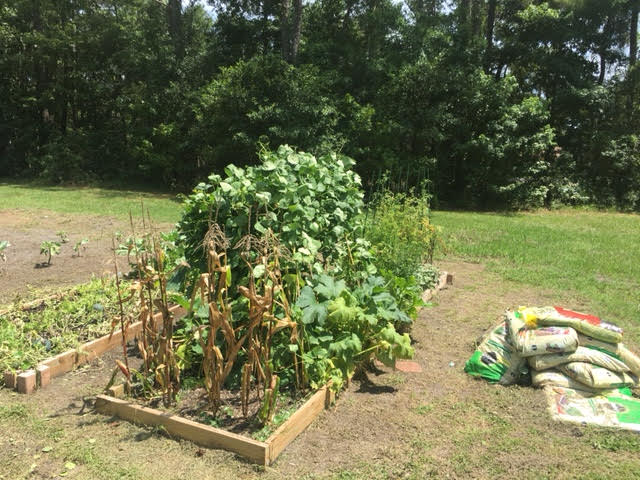At BCFSN, we thrive in part from our local Coordinating Committees positioned across the country that act as a “hub” for churches in that specific region to build relationships and discuss location specific topics. This week, let’s shine a spotlight on one of our churches: Pleasant Hope Church located in the Historic Northside of Jacksonville, Florida. Below is an interview with their two pastors, Reverend Matthew Spann and Reverend Wayne McNeil. These pastors are leading their congregation towards great goals and working hard to encourage overall health among the community. Under their amazing leadership, the congregation is set up for tremendous success!
Interview with Reverend Spann
1. Growing up, did you have any experience farming, raising animals?
Reverend Spann: No, I used to steal people’s crops as a kid like watermelon, corn, anything. Then we’d make a fire in the woods to cook it, but no farm work. To be honest, I was running the street starting trouble as a kid. But now I am learning to love the outdoors and to love the earth.
2. Is it therapy?
Reverend Spann: Yes, and it’s also addictive! I am having to come out every day tend to them, weed, and water. It takes two hours sometimes, but I have to do it every day.
3. What do you hope to give to your Congregation by doing this?
Reverend Spann: First of all to give them the skills. This is something we all used to do but the skills haven’t been maintained within the community. Let’s also tie it to scripture. The Bible calls us to sow seed and to reap from the ground, which you can’t do without working the ground. And also, as an avenue for the congregation to gain skills that could make them money.
4. Do you have any health goals for your Congregation?
Reverend Spann: Yes, well first of all I’m about to turn 60 and I’m having to find ways to keep myself more active as well as the seniors in my congregation. I tell them lots of caucasian individuals eat healthy and fresh but it’s not as common in our community and we’re trying to change that. [We’re] helping each other with recipes, slow cooking things [and trying] different methods to introduce fresh foods. My main goal is once I further develop my knowledge that I’ll be able to express myself more through our garden.
5. Have you run into any problems?
Reverend Spann: Nothing in particular – normal things like the wind and rain, having to weed and water. The reality is if you put the work in the Lord takes care of you and it.
Interview with Reverend Wayne McNeil
1. What you are hoping to get out of doing this and what are you hoping to bring back to your congregation?
Reverend McNeil: My hope is to help the community at large. I hope that this project will help the community by first teaching them how to fish, giving them a good source of fresh fruits and produce and finally it gives me joy! It’s something that I just love to do.
2. Did you have any farming experience growing up?
Reverend McNeil: When I was 12 or 13 my Uncle George taught me how to garden and I grew up in the city.
4. So where did you garden?
Reverend McNeil: We grew the garden in his backyard and also we had a plot at the base of a mountain that the government would let us grow on every summer.
5. And was this something you did throughout your life after learning as a child?
Reverend McNeil: Yes, I have always maintained a garden. I moved from Pennsylvania to Florida and had to change what I grew but it’s become something I have to do to maintain my mind. It’s something that I find peace in. I’ve grown a watermelon patch every summer since George taught me to garden.
6. Lastly, what is your vision for you and your plot in the next five years?
Reverend McNeil: I would like to expand! We have over an acre here and I would like to add some animals like hens so we could produce our own eggs and compost. [We’d like to bring] in fruit trees to plant for the future [so the children can] come back [years from now] and pick the fruit that they planted and [maybe] bring their own children with them. [We’d like] to have an interest from the young people of the neighborhood and the church and for the garden to become a fixture within the community.

